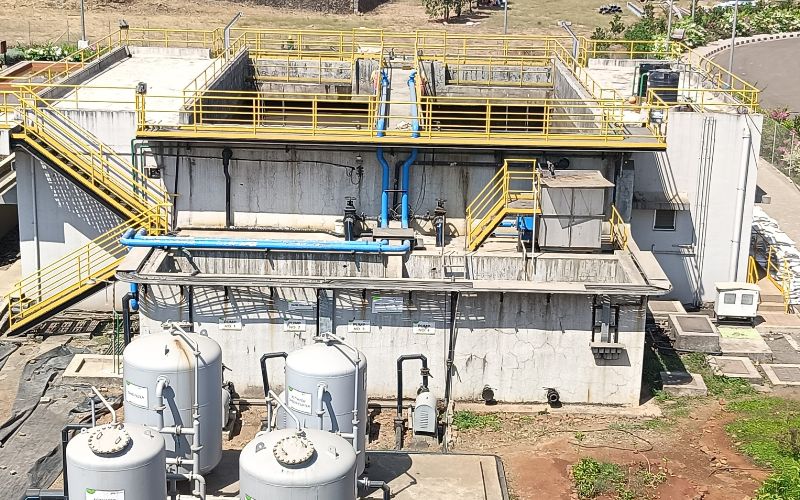“Water has always been the lifeline of communities and economy from ancient ages to date. Preserving precious resources and their sources is both a social and economic imperative. Recognizing this, Godrej has been at the forefront of implementing innovative water conservation strategies, setting benchmarks in the industry.” Tejashree Joshi, Head of Environmental Sustainability, Godrej Enterprises Group
On World Water Day, Godrej Enterprises Group (GEG) reaffirmed its commitment to enhancing climate resilience and preserving natural ecosystems vital for global water security. Aligning with this year’s theme—Glacier Preservation—the company focuses on mitigating greenhouse gas emissions, a primary driver of glacier melt, to protect freshwater sources and dependent ecosystems. Recognizing the industrial sector’s pivotal role in combating climate change, Godrej has integrated sustainability into its operations through emission reduction, resource conservation, and eco-conscious practices.
Tejashree Joshi, Head of Environmental Sustainability, Godrej Enterprises Group emphasized, “Water has always been the lifeline of communities and economy from ancient ages to date. Preserving precious resources and their sources is both a social and economic imperative. Recognizing this, Godrej has been at the forefront of implementing innovative water conservation strategies, setting benchmarks in the industry. Our early adoption of rainwater harvesting and wastewater recycling not only preserves precious resources but also ensures that communities and ecosystems thrive. By integrating sustainability into our operations, we are actively creating pathways to secure the planet and people thereby contributing to the economy’s growth.”
Water conservation is a key aspect of Godrej’s sustainability initiatives. The company has achieved over 50% reduction in specific water usage across its operations since it started accounting for its water footprint way back in 2010-11. Notably, the company has also implemented robust rainwater harvesting systems across its facilities in India, collecting runoff from rooftops and open spaces to replenish underground aquifers. At its Vikhroli campus in Mumbai, the company boasts an annual recharge capacity of over 4,25,000 cubic meters.
In addition to rainwater harvesting, Godrej recycles wastewater from its operations. Since 2010-11, the combined volume of recycled wastewater and harvested rainwater exceeds 20 billion litres. This large-scale groundwater replenishment plays a vital role in water-stressed regions where several of the company’s factories and residential townships are located.
In rural communities, Godrej’s water conservation programs have supplied over 100 million litres of water, benefiting regions in Maharashtra, Punjab, and Tamil Nadu. Collaborations with local communities have led to the restoration of ponds and construction of check-dams, enhancing water availability and supporting agriculture.
Godrej’s sustainability efforts extend to energy and emissions. The company has achieved a 50% reduction in specific energy use and has facilitated over 650 green buildings across India, covering more than 320 million square feet. These structures collectively reduce energy consumption over 610,000 MWh annually, significantly curbing emissions that contribute to glacial melt.
Additionally, the large tract of mangroves at Vikhroli that the company conserves, sequesters about 60,000 equivalent tonnes of carbon dioxide every year, presently holding over 12 lakh tonnes of carbon dioxide in its biomass. Looking ahead, Godrej has set ambitious sustainability targets for 2032, that includes being 2X water positive, and reducing carbon emissions intensity by 60%.
India faces a severe water crisis, with per capita water availability nearing scarcity levels. With government initiatives like Jal Jeevan Mission for rural water access, Namami Gange for river rejuvenation, and incentives for industries to adopt sustainable water practices and promoting wastewater recycling, rainwater harvesting, and stricter groundwater regulations, continuous efforts are being made to curb the crisis. As climate change accelerates, Godrej’s proactive water management and sustainability initiatives play a crucial role in ensuring water security for communities and safeguarding ecosystems. Continued collaboration between policymakers, industries, and communities remains vital for ensuring long-term water security thereby contributing positively to the Indian economy.

